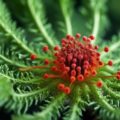Introduction to Bladder Health and Nutrition
Taking care of our bladder health is an important but often overlooked aspect of overall wellness. The foods and drinks we consume can have a significant impact on bladder function and comfort. By making mindful choices about our diet, we can support better bladder health and improve our quality of life. This article will explore nutritious foods that may benefit bladder health, as well as dietary tips for maintaining a happy, healthy bladder.
Hydrating Foods for Bladder Health
Proper hydration is crucial for bladder health. While drinking plenty of water is important, we can also increase our fluid intake through hydrating foods. Some excellent options include:
- Watermelon
- Cucumber
- Celery
- Lettuce
- Zucchini
- Tomatoes
These foods have high water content and can contribute to our daily fluid needs. They also contain valuable nutrients and antioxidants that support overall health. Incorporating these hydrating foods into our diet can help maintain proper bladder function and prevent urinary tract infections.
Antioxidant-Rich Foods for Bladder Protection
Antioxidants play a vital role in protecting our cells from damage, including those in the bladder. Foods rich in antioxidants can help reduce inflammation and support bladder health. Some antioxidant-packed foods to include in your diet are:
- Berries (blueberries, strawberries, raspberries)
- Leafy greens (spinach, kale, collard greens)
- Nuts (walnuts, almonds, pecans)
- Green tea
- Dark chocolate
These foods not only benefit bladder health but also contribute to overall wellbeing. Enjoy a variety of colorful fruits and vegetables to ensure you’re getting a wide range of protective antioxidants.
Probiotic Foods for Urinary Tract Health
Probiotics are beneficial bacteria that support gut health and can also benefit the urinary tract. Including probiotic-rich foods in your diet may help prevent urinary tract infections and promote bladder health. Some excellent sources of probiotics include:
- Yogurt
- Kefir
- Sauerkraut
- Kimchi
- Kombucha
When choosing probiotic foods, opt for varieties with live and active cultures. If you’re new to fermented foods, start with small amounts and gradually increase your intake to allow your digestive system to adjust.
Foods to Limit for Better Bladder Health
While many foods can support bladder health, some may irritate the bladder or exacerbate existing issues. It’s important to be mindful of these potential irritants and consider limiting or avoiding them, especially if you have sensitive bladder symptoms. Some foods and drinks to be cautious of include:
- Caffeine (coffee, tea, energy drinks)
- Alcohol
- Artificial sweeteners
- Spicy foods
- Acidic foods (citrus fruits, tomatoes)
- Carbonated beverages
Remember that everyone’s body is different, and what irritates one person’s bladder may not affect another’s. Pay attention to how your body responds to different foods and adjust your diet accordingly.
Lifestyle Tips for Bladder Health
In addition to a bladder-friendly diet, certain lifestyle habits can promote better bladder health:
- Stay hydrated by drinking water throughout the day
- Practice pelvic floor exercises (Kegels) to strengthen bladder muscles
- Maintain a healthy weight to reduce pressure on the bladder
- Urinate regularly and don’t hold it for long periods
- Practice good hygiene to prevent urinary tract infections
- Manage stress through relaxation techniques or meditation
By combining a nutritious diet with these healthy habits, you can support your bladder health and overall wellbeing.
Frequently Asked Questions (FAQ)
Q1: How much water should I drink for optimal bladder health?
A1: While individual needs vary, aim for 6-8 glasses of water per day. Listen to your body and drink when you’re thirsty. Your urine should be pale yellow – if it’s dark, you may need to drink more water.
Q2: Can cranberry juice help prevent urinary tract infections?
A2: Some studies suggest cranberry juice may help prevent urinary tract infections due to its proanthocyanidins content. However, results are mixed. If you enjoy cranberry juice, it’s generally safe to include in moderation as part of a balanced diet.
Q3: Are there any supplements that can improve bladder health?
A3: While a balanced diet is best, some supplements like vitamin C, probiotics, and D-mannose have shown potential benefits for bladder health. Always consult with a healthcare professional before starting any new supplement regimen.
Q4: How long does it take to see improvements in bladder health after changing my diet?
A4: The timeline can vary depending on individual factors. Some people may notice improvements within a few days, while for others it may take several weeks. Consistency is key – stick with your bladder-friendly diet and give your body time to adjust.
Q5: Can certain foods help reduce frequent urination at night?
A5: Avoiding bladder irritants like caffeine and alcohol, especially in the evening, may help reduce nighttime urination. Additionally, foods rich in magnesium like leafy greens, nuts, and whole grains may support better sleep and potentially reduce nighttime bathroom trips.









